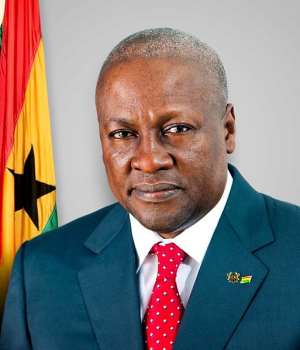
The trouble with Ghana is that we have incredibly sluggish and self-entitled political class or leaders who figure their rise to political office qualifies them for colonizers’ wages and benefits. By living virtually at the state’s expense, the political class has made itself the modern day colonizers of Ghana; as the British were, in the Gold Coast. Leadership's dependence on the state despite the scant resources of the country is unhealthy, unjust and uneconomic.
It is evident that the Ghanaian political class subsists at the expense of struggling Ghanaians. Despite being the most paid public servants, the political class enjoys these free things among others—free house, free cars, free fuel, free home help, free driver, free utilities, and innumerable allowances sitting and entertainment.
These benefits are eerily similar to what Colonial Britain afforded her emissaries to the Gold Coast. And one wonders why Ghana has a colonial benefits package for her citizen government officials. At an average annual salary of GHc200,000, shouldn’t the political class make a living as do all Ghanaians who earn much less?
Unlike Colonial Britain that profits from its domination of the Gold Coast thus, justify the payment of large benefits, the Ghanaian political class are running the economy into the ground. The economy is not growing commensurate to the growing appetite of the political class for more resources. Despite its large demand on the state purse, the political class does not generate the needed wealth through its management of the economy.
So, we have had to borrow every fiscal year to fund the opulent lifestyle of politicians. For instance, the 2016 budget has estimated nearly GHc6 billion in deficit finance. So, the question Ghanaians must resolve to ask is—whether it is prudent to keep borrowing against our children and grandchildren’s future merely to fund the comfort of an unproductive political class?
The Ghanaian economy is contracting and, has been for years due to the recurrent balance of trade and payment deficits. The trade deficit, in particular, underlies the need to borrow at high-interest rates to fund the excessive fiscal spending. The failure to balance trade returns calls for the withdrawal of these unearned benefits to the political class.
Ending the special treatment of the political class is necessary because, as the economy contracts, we cannot afford to borrow at high rates and under harsh conditions that force the redraw consumer subsidies designed to stimulate the economy. The recent increases in utility and fuel taxes or levies are a typical instance of years of economic decline and fiscal irresponsibility.
Perhaps, the time has come for the political class to pay for their utilities and fuel. A strong moral case exists against the dependency on the state while the population scrambles to make ends meet. If a teacher earns GHc12,000 a year, to provide for all the things a minister gets for free despite, receiving GHc200,000 a year, nothing can be more immoral and unjust.
Somehow, we must speak out against this overt abuse of the power of allocation and the public purse. Speaking out is important not only to achieve economic justice for Ghanaians, but it also lends itself to attracting the right people to political office, for the good reasons. If we fail to make our voices heard on the matter, we may someday have to apologize to posterity for both the gross abuse and our silence.




 Dumsor: Don't rush to demand timetable; the problem may be temporary — Atik Moha...
Dumsor: Don't rush to demand timetable; the problem may be temporary — Atik Moha...
 Space X Starlink’s satellite broadband approved in Ghana — NCA
Space X Starlink’s satellite broadband approved in Ghana — NCA
 2024 election will be decided on the grounds of the economy; choice of running m...
2024 election will be decided on the grounds of the economy; choice of running m...
 Dumsor: We're demanding less; just give us a timetable — Kwesi Pratt to ECG
Dumsor: We're demanding less; just give us a timetable — Kwesi Pratt to ECG
 Do I have to apologise for doing my security work, I won’t – Simon Osei-Mensah r...
Do I have to apologise for doing my security work, I won’t – Simon Osei-Mensah r...
 All my businesses have collapsed under Akufo-Addo — NDC Central regional chair
All my businesses have collapsed under Akufo-Addo — NDC Central regional chair
 Military, Prison Officers clash in Bawku, three injured
Military, Prison Officers clash in Bawku, three injured
 GRA-SML contract: MFWA files RTI request demanding KPMG report
GRA-SML contract: MFWA files RTI request demanding KPMG report
 Court threatens to call second accused to testify if NDC's Ofosu Ampofo fails to...
Court threatens to call second accused to testify if NDC's Ofosu Ampofo fails to...
 Family accuses hospital of medical negligence, extortion in death of 17-year-old...
Family accuses hospital of medical negligence, extortion in death of 17-year-old...
